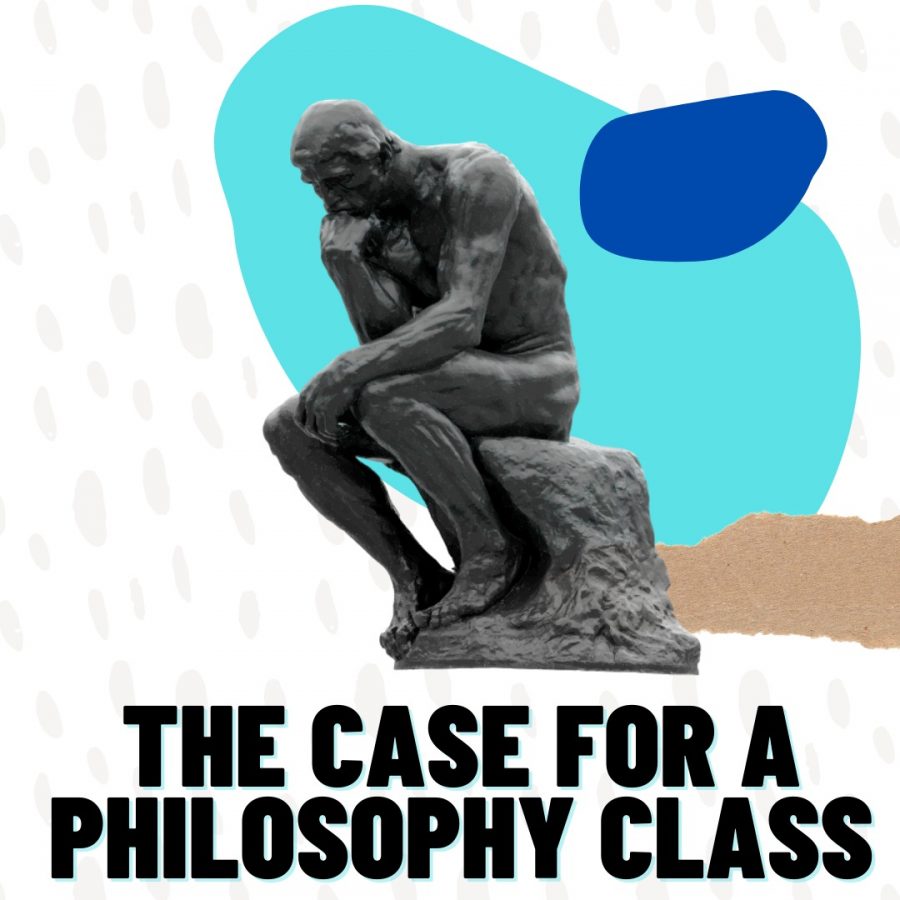To add or not to add a philosophy class? That is the question
Students debating whether humans have free will, teachers lecturing about ancient Greek philosophers — these situations can be seen in philosophy classes around the world, helping students develop their critical reasoning. Krop is not included in the list of schools that have a class like this, but it should be.
Since ancient times, philosophical thought has always been a focal point of education. From ancient Greece to the Roman Empire and to the Enlightenment thinkers of the 18th century, learning philosophy was one of the most important subjects for students. In the last century, philosophy’s role in education has diminished.
Philosophy classes help students succeed by teaching them to have independent reasoning. Although philosophy answers the most fundamental questions of human existence, it is not required learning in America. In some countries that outrank the United States in education, like England and Japan, philosophy is a high school requirement.
The Philosophy Learning and Teaching Organization (PLATO), an organization in the United States that introduces philosophy to K-12 students through various programs, is present in three counties in Florida, including Palm Beach. According to PLATO, when a student learns philosophy and philosophical inquiry they also learn about respect, listening to others, creative thinking and self-correcting. They also reported that performance is higher in standardized tests such as the Cognitive Reflection Test, which measures problem-solving skills.
Since philosophy is not a core class in Florida, high schools don’t spend money and resources on it. This is the case for Krop. When Mary Lee, the head of the social studies department, proposed a philosophy class the school rejected her idea due to insufficient funding.
“Anything that makes the students think is beneficial to society, and to the school itself,” Lee said. “Using the socratic method of thinking, they can come up with their own answers.”
Adding another class to Krop’s curriculum would mean that the school would have to pay for books, along with paying another teacher. If Lee taught the class only for one period, 30 World History Honors students would be left without a teacher.
Lee isn’t the only teacher who supports a philosophy class. Arturo Tenacio, the AP Psychology teacher, believes that students need to know about philosophy in order to achieve great things in life.
“Any leader in the world has to know about philosophy,” Tenacio said. “In this high-level technological society, philosophy should be more important than ever before, since it gives the ability to process information better, and to know how to argue and work better.”
Having taken a philosophy class in high school when he lived in Spain, Tenacio said that the class helped him not only to make up his own ideas, but also led him to ace the equivalent to the SAT in Spain before going into college.
By not having a philosophy class at Krop, the school is letting its students down. A philosophy class would be a beneficial addition, and until it is added to Krop’s curriculum, students will continue having trouble developing their own ideas in the modern age.






























Eric Hafter • Dec 4, 2020 at 6:39 pm
As social studies co-chair for the last 5 years, I have advocated a philosophy class but funding is always the major barrier. If more students and parents read this article and spoke up, we could see change.